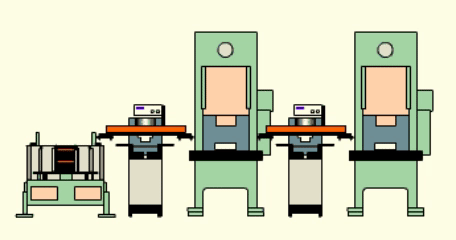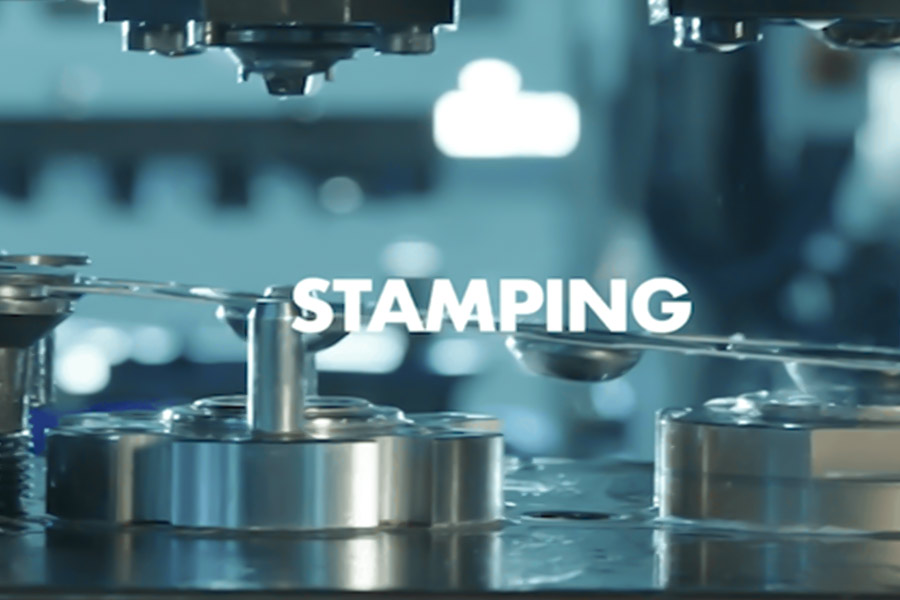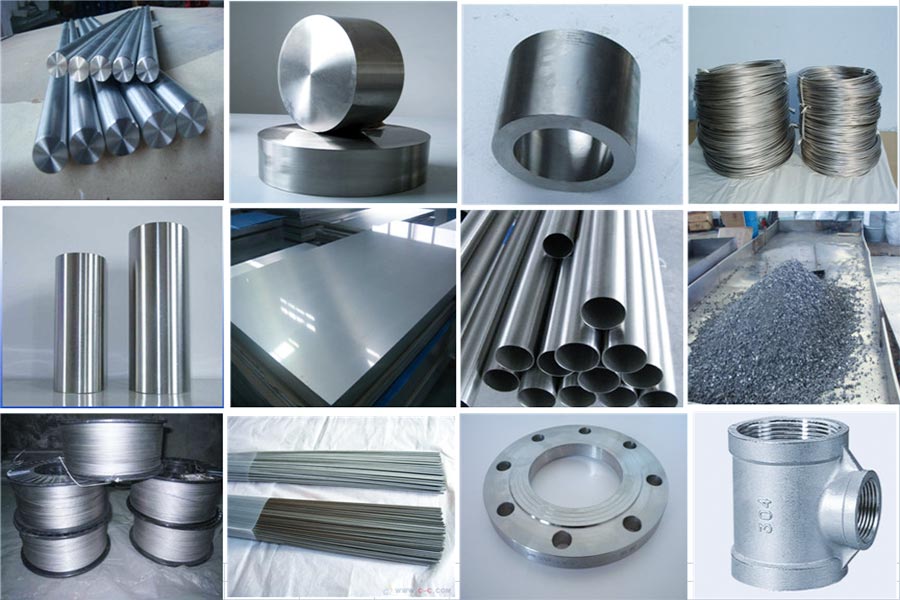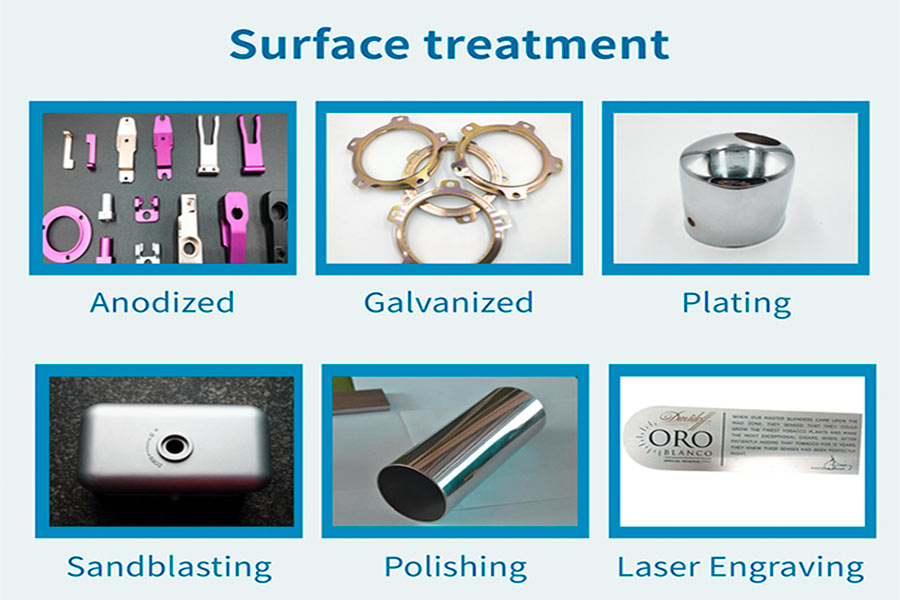金属スタンピングは、現代の製造における不可欠で効率的な形成プロセスです。 それは、金属シートを複雑で高速スタンピング装置を介して複雑で高精度のコンポーネントに変換します。 data-translateId = "1b7b0ac94ee3973221c7b029786e2d17" data-pos = "220" data-len = "167" data-v-7b79c893 = "" data-TranslateID = "2A039207BD8B41AF96D9A0A0DB4FE898" data-pos = "0" data-len = "220" data-v-7b79c893 = "">スタンピング
業界の先駆者として、JS Manufacturingは、材料選択や金型開発から大量生産まで、革新的なスタンディング技術、革新的なスタンディング、産業の洞察を備えたプロセス全体のカスタマイズソリューションを顧客に提供します。 プロセス全体には、正確な金属形成、曲げ、切断、その他のプロセスが含まれます。
精密部品の大量生産に適しています。 1。 Data-V-7B79C893 = ""> プログレッシブスタンピング リンクされた金属株の複数のセットを通じて、パンチング、ベンディング、フォーミングなどの複数のプロセスが単一の組み立てラインで徐々に完了します。 href = "https://jsrpm.com/stamping"> js Companyは、さまざまなワークステーションの金型を継続的に使用して効率的な大量生産を達成するために開発された高度な金型テクノロジーを採用しています。 2。 data-len = "22" data-v-7b79c893 = ""> モールドスタンピングの転送 ロボットアームまたはコンベヤーベルトによってワークステーション間で輸送される大きなまたは複雑な形状の部品に適しています。 3。 data-len = "22" data-v-7b79c893 = ""> 金型スタンピング マルチアングル曲げのために特別に設計された複雑な曲線形成は、水平方向にスライドする金属スタンプを通じて達成されます。 JSの柔軟な金型システムは、曲げ角のオンライン調整をサポートしています。たとえば、単一のスタンピングは、電子コンポーネントブラケットの生産において、3つの異なる方向で曲げを完了することができます で、材料の使用率を15%増加させます。少量のカスタマイズの注文に特に適しています。 4。 data-len = "12" data-v-7b79c893 = ""> deep 描画 金属スタンプを伸ばすことにより、金属シートは深い空洞部品になります。 部品の要件に従って(アルミニウム、鋼、銅合金など)、および平準化や洗浄などの前処理による滑らかな表面。 高精度金属スタンプ付き金型のパラメーターを形成するための金属シートの厚さ耐性(±0.05mm)を較正します。
data-pos = "0" data-len = "25" data-v-7b79c893 = "" "> 2.moldデザインと試運転 部品の3Dモデルに基づいて、金属スタンプ金型のジオメトリとスタンピングパスが設計され、DIの応力分布はCAEシミュレーションによって最適化されます。 3. stamping プレステーブルに金属板を配置すると、プラスチックの変形は金属スタンプ金型と油圧/サーボプレスのコラボレーションによって達成されます。 4. post-treatment and Surface optimization 金属スタンプ製品は、バリを除去して仕上げを改善するためにトリミング、リム、または電解研磨をトリミングします。 5.品質検査とデータ閉鎖 
金属スタンピングとは?

金属スタンピングの基本プロセスは何ですか?
金属スタンピングプロセスの重要な手順は何ですか?
金属スタンプ部品の寸法精度(例:穴の間隔≤0.01mm)は、CMMまたは光学スキャン、および生産データを介して型パラメーターを介して追跡しました。
金属スタンピング金型の種類は何ですか?
メタリックスタンピング mold は、製造業のコアツールです。主に次のカテゴリに分かれています:
punching mold : 金属シートを分離し、切断、パンチング、切断などの手順を完成させて、必要な輪郭や穴を取得します。
bend mold : 特定の角度または形状(例えば、U字型、V字型)で金属板を曲げ、加圧された凸と凹型DOの組み合わせによって曲げを完成させ、リバウンド補償を考慮します。
deptening mold : フラットビレットを中空の3次元部品(カップやシリンダーなど)に凸型を押すことにより、しわや亀裂を制御する必要があります。 形成モール: 膨らみ、リッピング、リッピング、首のシェイム、ヨウ素の首の張り、首の首の張り、首の張りの境界線などの金属製のプラスチック変形に使用される href = "https://jsrpm.com/contact-us">複雑な湾曲した表面または補強鋼構造の処理に適しています。 composite mold : スタンピング、切断、成形など、単一のスタンピングのスタンピングでいくつかの段階を完成させ、コンベックスダイ構造の組み合わせによる効率的な加工を実現します。 Enter mold (連続
Composite mold :同じワークステーションでの複数のプロセス(切断やストレッチなど) Progressive mold :さまざまな作業位置での連続処理(スタンピング→曲げ→切断) data-pos = "0" data-len = "35" data-v-7b79c893 = "" "> 金属互換性のスタンピング: カビの最適化+潤滑処理:材料の流れ抵抗とカビの癒着を減らします。
Step-stamping + flexible die: Phased deformation reduces single load, suitable for mass production of ultra-thin battery housing. Titanium alloy stamping requires hot stamping or hot stamping combined with high-precision CNC machining and special mold technology. The specific reasons are asフォロー: 1.High temperature plasticity improvement Titanium alloy have high hardness and resistance to deformation and are prone to cracking when pressed at room temperature. By heating the material to 600-850℃ (hot stamping) or 300-500℃ (warm stamping), the plasticity of the material can be greatly improved, forming difficulty reduced and the rebound minimized. 2.Precision CNC auxiliary processing Combined with JS company's ±0.005mm high-precision CNC equipment, titanium alloy parts can be pressed for precision polishing at the micrometer level to meet stringent tolerance requirements in aerospace, medical, and other fields. 3.Special molds and lubrication technology Adopt high temperature resistant mold materials(such as tungsten steel or ceramic coated mold), combine nitrogen or graphite lubricants, prevent mold wear and titanium alloy bond, prolong mold life. 4.Surface treatment matching After stamping, titanium alloys needs to be anodized, sandblasted or chemically passivated to improve its corrosion resistance and appearance. It is also an extension JS company's material processing technology. 1.Material fixation technology in microgravity environment Electromagnetic adsorption and vacuum clamping are used to overcome the limitation of traditional mechanical fixation.JS's automation system adjusts the clamping force in real time, ensuring the metal retains a positioning accuracy of 0.02mm even in weightlessness. The tolerance control of the numerical control equipment reaches ±0.005mm, which satisfies the strict requirement for the precision of spacecraft docking mechanisms. 2.Intelligent flow reconstruction Through the cooperative operation of industrial robot clusters, JS detects micro-scale displacement by gravity-free compensation algorithm and realizes automatic adjustment of stamping parameters. Its adaptive control system can control the machining error rate to less than 0.3%. The technology has been demonstrated in the production of satellite solar panel supports, with a 40% increase in productivity. 3.Improving adaptability to vacuum-environment processes The inert gas shielding arc cladding technology used to solve the problem of metal oxidation in vacuum. JS laboratory data show that 15μm of dense oxide film is formed on the surface of titanium alloy surface treated by this process. 4.Optimization of lightweight structural design Based on 3D printing additive manufacturing technology, JS can achieve integrated topology optimized structures. A case study of a certain type of rocket fuel nozzle shows that through lattice structure design, the weight is reduced by 45%, the pressure bearing capacity reaches 1.8 times that of traditional technology, and the space load requirement is perfectly balanced. 5.Extreme environment simulation verification system A comprehensive testing platform consisting of vacuum chamber, centrifuges and thermal shock chamber was established, capable of simulating temperature gradients ranging from -180°C to +300°C and 10^-6Pa degree. In vacuum environment, the fatigue life of the validated product increased to more than 5 times the ground condition. 1.Anodizing 2.Electroplating 3.Spraying 4.Chromate Conversion Coating 5.Polishing/Brushing 1.Ultra-high precision machining: With advanced CNC technology (such as CNC), tolerance of ±0.005mm can be achieved to meet the requirements of precision parts. 2.Multi material adaptation: Supports stamping of materials such as metals and composites and has processed more than 50 materials in the past year. 3.Process efficiency: 98% of orders are delivered on time, project cycles are reduced by an average of 15%, and stamping lead times are optimized. 4.Cost control: Reduce production cost by 20% and improve resource utilization through process optimization. 5.Green manufacturing: Reduce energy energy consumption and waste by 20% using energy-efficient equipment and material recycling systems. In the metal stamping industry, the performance of metal stamp is closely related to the accuracy and quality of the final product, and to achieve this goal, it must rely on high-precision pre-processing technology. Through steps such as surface cleaning, deburring, annealing, and surface modification (such as phosphating and lubricating coatings), not only can the ductility of metal materials be significantly improved and the risk of cracking or oxidation during stamping be reduced, but it can also lay a solid foundation for subsequent metal stamping operations. JS combines high-precision CNC machining technology with environmentally friendly processes, incorporating the concept of sustainable development into the pre-processing stage, ensuring that metal stamping parts can maintain consistency whether they are structurally complex or mass-produced. This full process optimization from material preparation to finished product delivery not only improves production efficiency (reducing project cycle by 15%), but also promotes the industry's transformation towards high efficiency, low consumption, and high added value through technological innovation. The content on this page is for general reference only. JS Series makes no express or implied warranties regarding the accuracy, timeliness, or applicability of the information provided. Users should not assume that the product specifications, technical parameters, performance indicators, or quality commitments of third-party suppliers are completely consistent with the content displayed on this platform. The specific design feature, material standards, and process requirements of the product should be based on the actual order agreement. It is recommended that the purchaser proactively request a formal quotation and verify product details before the transaction. For further confirmation, please contact our customer service team for professional support. JS is an industry leading provider of customized manufacturing services, dedicated to providing customers with high-precision and high-efficiency one-stop manufacturing solutions. With over 20 years of industry experience, we have successfully provided professional CNC machining, sheet metal manufacturing, 3D printing, injection molding, metal stamping and other services to more than 5000 enterprises, covering multiple fields such as aerospace, medical, automotive, electronics, etc. We have a modern factory certified with ISO 9001:2015, equipped with over 100 advanced five axis machining centers to ensure that every product meets the highest quality standards. Our service network covers over 150 countries worldwide, providing 24-hour rapid response for both small-scale trial production and large-scale production, ensuring efficient progress of your project. Choosing JS Team means choosing manufacturing partners with excellent quality, precise delivery, and trustworthiness. 1.What is the difference between stamping and casting? Stamping is a cold machining process in which metal plates is pressed into shape by die. It is high efficiency andprecision and is suitable for thin plate parts. Casting is a thermal process in which molten metal is poured into molds to form complex shapes, but with low precision. 2.How important are molds to stamping? Mold is the core tool of stamping, which determines the shape, precision and efficiency of parts. Without the die, stamping is impossible, its design directly affects the product pass rate and production cost, is the soul of stamping technology. 3.What should be paid attention to when stamping stainless steel? Stainless steel stamping requires the use of high-hardness die, control stamping speed, stamping with lubricating oil, and annealing in time to eliminate hardening of workpiece, to avoid cracking and excessive mold wear. 4.What thickness of metal is required for stamping automotive parts? The thickness of the sheet metal commonly used for stamping automobile parts is 0.6-2.5mm. Body coverings (such as car doors) are mainly made of 0.6-1.2mm ordinary steel plates, while structural components (such as collision beams) are made of 1.2-2.5mm high strength steel with balanced strength and molding.
超薄型金属シート(<0.1mm)のスタンプ中に引き裂きを防ぐ方法は?
テクノロジーのタイプ
コア原則
特定の測定
該当するシナリオ
アンチチア効果
金型最適化
ストレス集中を減らします。
勾配r-角型 +プログレッシブスタンピング。
精密スタンピング(センサーハウジングなど)。
涙リスク↓40%。
マテリアル選択
スケーラビリティが増加します。
アルミホイル/アニールステンレス鋼。
大規模な変形成形(バッテリーハウジングなど)。
骨折の靭性は25%増加しました。
プロセス制御
圧力と速度を最適化します。
サーボプレス+低速スタンピング
高速連続生産。
降伏率は35%増加しました。
潤滑処理
摩擦抵抗を減らします。
水媒介潤滑剤+DLCコーティング。
高速精度スタンピング。
表面の傷跡↓90%。
柔軟な金型
バッファー圧力変動。
ポリウレタンソフトカビ+エアクッション支援。
薄壁の複合コンポーネント(マイクロスカフォールドなど)。
涙速度↓50%。
What type of process is required for titanium alloy stamping?

How to deal with zero gravity environment in space metal stamping?
What are the common surface treatment methods for aluminum stamping?

What are the technological advantages of JS company in the field of metal stamping?
Summary

免責事項
jsチーム
For more information, please visit the official website: jsrpm.com FAQs
Resources





